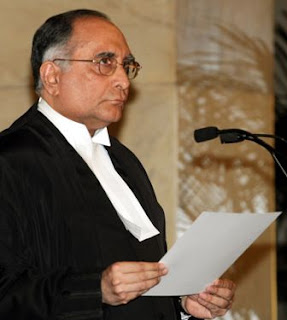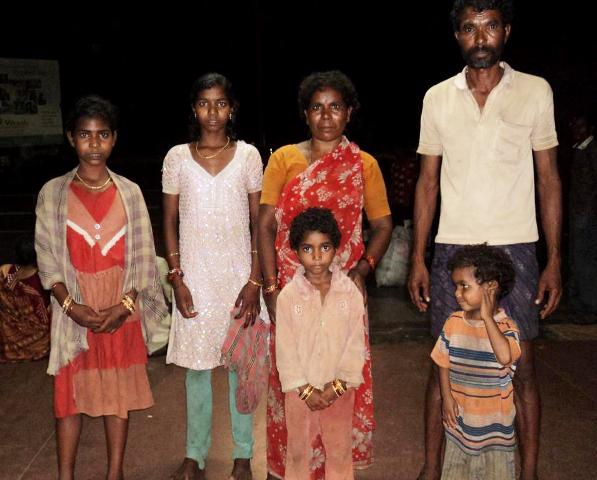PRESS RELEASE
Peoples’ hearing held and resolutions
forwarded to the Information Commissions prior to the Annual Convention of
Information Commission.
11 October, 2012,
Delhi: On the occasion of the 7th
anniversary of Right to Information, the Public Hearing organized by the
National Campaign for People’s Right to Information (NCPRI) bringing together
400 RTI users from 16 states and held a day before the annual convention of
State and Central Information Commissioners, which is to be addressed by the
Prime Minister, resulted in many resolutions drafted on the basis of people’s
experience of using RTI for 7 years being forwarded to the government. Also significant
discussions on the recent Supreme Court on the appointment of Information
Commissioners and its current and potential impact were discussed threadbare.
Speaking about the
recent Supreme Court judgment, Ms. Deepak Sandhu exhorted RTI users to defend
the simplicity of the procedures laid down in the existing RTI Act and not to
complicate it with legal processes and formalities. Mr. Shailesh Gandhi former
Commissioner stated that the recent Supreme Court judgment will only exacerbate
the problem of pendency. “Today if five Information Commissioners are able to
dispose of 15000 cases every year, the present judgment of the Supreme Court
will reduce the disposal rate to less than 25% of current capacity. This
judgment will undermine the efficacy of the RTI Act and will ultimately subject
users to even longer waits and delay.”
Speaking about the
Right to Information, Mr. Kamal Tank from RTI Manch in Jaipur, lamented that
about 9500 cases were pending in Rajasthan, while Pradip Pradhan, RTI activist
from Orissa highlighted that 8000 cases are pending in the Orissa State
Information Commission. Ms. Geeta Potsangbam representing a Manipur woman’s
organization called Machaliema stated that this is a right they are determined
to defend at all costs. “In Manipur we have as many as 800 activists who have
formed 48 associations across 4 districts to advance this right and ensure that
we break the apathy and indifference of the Commissioners” she added. Shanu a
physically challenged women residing n Delhi slum shared her travails in
accessing information about why her ration had been stopped without any prior
information given to her. Not willing to give up, she filed a second
appeal and is awaiting the response from the Commission. But it was the startling
revelations of Mr. Abey George a spokesperson of the anti-nuclear struggle of
Kudankulam that exposed the real state of affairs. “We filed an RTI case two
years ago on the safety of the nuclear plant and it took the Commission a year
and a half to respond and when they did respond they do so with a decent order
but the government have decided to ignore it and till date we have not got the
safety order” he shared.
Given the mounting
pendency cases, which was one of the major complaints of all RTI users, Anjali
Bhardwaj, NCPCRI pointed out that even the Central Information Commission is
not free of this malaise as it has as high as 28000 pendency cases at present.
In this connection one of the key resolution mooted at the meeting was “well
defined norms and standards of functioning of information commissions should be
adopted.” In this connection it was pointed out that the “recent judgment of
the Supreme Court effectively halves the number of commissioners without
increasing the total number of commissioners in each information commission and
without laying down norms on time-bound disposal of cases at the commission.
This will make the RTI ineffective and impede peoples’ fundamental right to
information.”
Shri Wajahat
Habibullah commenting on the resolution mooted at the meeting demanding the
time bound disposal of cases at the Commission, emphasized the point “unless
Section 4 of the Act is not implemented effectively obligating the government
to educate the public about all their rights and entitlements, the number of
pendency cases will not decrease.” Speaking in support of this appeal, Ms.
Deepak Sandhu, Central Information Commissioner assured activists that a 10 day
initiative will be implemented in December to monitor compliance of public
authorities with the orders of the Commission. She also suggested that the
number of commissioners and support staff be appropriately increased to deal
with the issue of pendency without affecting the quality of the orders passed
by the Commission.
A resolution was
passed to this effect that the norms of functioning of information commissions
be defined and a mechanism for time bound disposal of cases be adopted. The
number of commissioners for each Commission must be determined on the basis of
these norms.
It was also
resolved that no case should be disposed of until either a penalty
is levied and recovered and Information Commissioners must ensure that
penalties imposed by them are recovered and are entered into the ACR/service
record of the concerned official.
Shri Balwinder
Singh an RTI activist from J&K in his impassioned speech urged the
government to set up appropriate mechanisms to protect RTI users and the
whistleblowers. In the same vein since many other RTI users shared their
experience of being intimidated in the process of seeking information, a
resolution was passed urging government to pass a directive mandating that in
case of an attack on an RTI user the information sought by the applicant be
disclosed and put out in the public domain immediately. Celebrating some of the
landmark judgments given by information commissions, citizens spoke of the
judgment of Shri Wajahat Habibullah which included compensation
awarded to widows residing in Delhi whose pensions were peremptorily stopped
without informing them. In a recent instance Smt. Annapurna Dikshit, CIC has
directed the Legislative Assembly of Delhi to publicize the proceedings of the
assembly as most citizens have no access to information on the legislations
passed and questions raised on the floor of the house .
The Public Hearing
was organised by NCPRI in collaboration with other civil society groups
including Satark Nagrik Sangathan, Mazdoor Kisan Shakti Sangathan, Transparency
International, CHRI, Accountability Initiative, JOSH, Pardarshita, NFIW, CFAR,
Rajasthan RTI Manch, Sanskriti Foundation and Inclusive Media for Change.
For more
information please contact Farah at 95605.11667 or Nandini Dey at 99531.53445





































